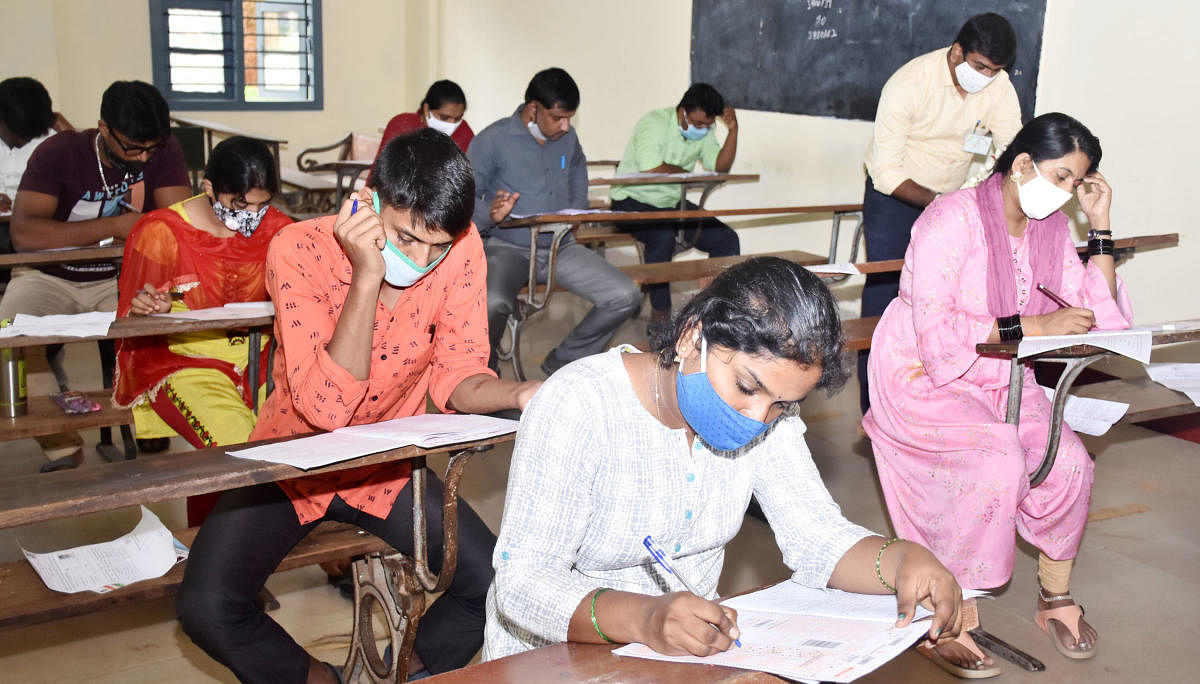

Every year I religiously make note of significant events and changes in the education sector right from January onwards. Little did I realise this year that by March the entire scenario would take such a drastic turn that every development other than the Covid-19 induced changes would fade into insignificance!
Without repeating what everyone knows about the lockdown, postponement or cancellation of exams, switch-over to online classes etc, let us review some significant changes that happened before, during, and after the Covid-19 lockdown:
The Central Board of Secondary Education (CBSE) offered an option of appearing for either the Standard or Basic (easier) exam in Math for Class 10 students. Other Boards have also started offering a wider variety of subjects in Class 10 itself, allowing students to drop subjects they are not good in or do not enjoy.
The All India Council for Technical Education (AICTE) released data in February that 50% of seats in engineering colleges remained vacant. In fact, several engineering colleges all over the country closed down in the last two years (before the lockdown), five of them from Karnataka. Similarly, the Department of Technical Education, Karnataka released data that intake into 3-year polytechnic diploma has decreased from 61,000 in 2015-16 to 41,000 in 19-20. As many as 35,000 seats were vacant last year. This is despite admission being available easily after Class 10, fee being low and employment prospects at the supervisory level being fairly good.
Computer Science was the most popular choice of branch opted by students in CET counselling, followed by Information Science and Electronics. “Indian students blindly choose courses and colleges based on wrong information circulated on social media,” says Prof S Sadagopan, Director of IIIT Bangalore.
Campus recruitment was good in top colleges this year, but not in the average ones. On the other hand, students enrolling for NEET in the past few years went up from 6.16 lakh to 15.9 lakhs.
In January, when the results of CAT-2019 came out, once again the majority of the toppers were male engineers, many of them from premier institutions like the IITs. Even among the minority of girls who got top ranks, most of them were engineers. This reconfirms the fact that the CAT exam for admission to top MBA institutes continues to be based on analytical and logical-mathematical intelligence.
Job opportunities
Surveys done in early 2020 showed that there has been a spurt in jobs for engineers dealing with data sciences, augmented reality (AR) and virtual reality (VR). Gaming designers continued to be in demand, and machine learning is showing a steady spurt. Block-chain engineers who had seen high demand in 2019 faced a slowdown in the current year.
On June 20, University Grants Commission announced that 230 universities which have achieved good performance will be allowed to offer online (distance learning) degree courses. The modalities are being worked out. JEE Main will be held 4 times in 2021, reducing stress on students. From next year onwards, it will be offered in Kannada also.
Karnataka Association of Management of Primary and Secondary Schools declared as early as June 23, that over 35,000 private school teachers across the state have lost their jobs, majority of them from nursery and primary sections, and many schools are shutting down too.
New outlook for 2021
With cases reducing and vaccine slowly becoming a reality, it is time to introspect what we need to do in 2021.
Though schools may reopen, there is likely to be continuation of online classes. Teachers, parents and students need to sharpen their skills, undergo training and practice to ensure that proper learning happens on digital platforms.
Since there may not be many fests, inter-school competitions and large gatherings, we need to devise group activities that can be carried out with small teams that can interact virtually, so that children learn beyond academics.
This is a good time to review career plans of students, since we have seen practically that “scope” of any career can change without notice. The need is to identify the strength and aptitude of each child and guide them into a career they will excel in, regardless of the demand and scope.
Students should be given information on new and promising subjects. At the same time, students will necessarily need to be taught self-awareness, stress management, emotional intelligence, and life skills, as success in future will be highly dependent on how well a person can adapt, interact, accept and sharpen inter-personal and social skills.
(The author is a senior counsellor based in Bengaluru)